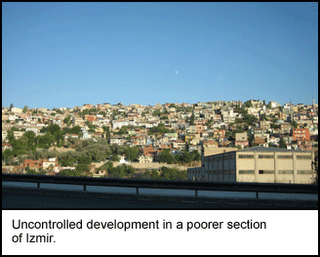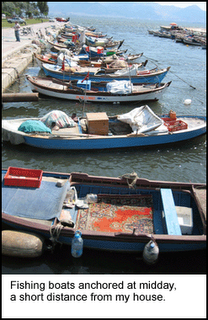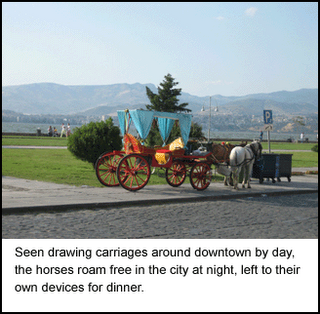Ramazan and Şeker Bayram (Part 1)
Last Monday, October 23, marked the end of the month-long religious fast of Ramadan (Ramazan in Turkish). For a month, faithful Muslims rose in the pre-dawn hours before imsak, the dawn call to prayer indicating the beginning of the day's fast, to eat and drink. For the rest of the day they allowed nothing to pass their lips until iftar, the evening call to prayer indicating the end of the day's fasting. I asked a Turkish friend of mine about why people fast. "We are not correct Muslims," she explained. "Throughout the year we do things we should not...we drink alcohol, do not pray five times a day...maybe do other things that Allah does not approve. At Ramadan, we have the chance to fast and pray, and we believe if we do so, we will be forgiven for the wrong things we did the rest of the year." A bit like a combination of Lent and going to confession, I thought -- doing penance, practicing self-denial in order to purify the spirit. She went on to explain that the other reason for fasting is to develop an understanding of what life is like for the poor; to have food and drink all around, but not be able to touch it. I was moved by this. Such a concerted act of empathy towards the less fortunate, practiced by even the well-to-do, is something the world could use more of.
As for empathy, I thought I'd try to develop my own by participating in the fast. But after one day of no food or water (the water part was the worst), I realized that I didn't have sufficient justification for fasting to help me through the more difficult times. Fortified by belief, or by the strength of tradition, it is easier to navigate the bumps in the road...for me, it was merely an experiment. When I felt faint and dizzy on the first day, I couldn't find much justification to continue doing this to myself. So I stopped.
The communal act of self-denial that occurs during Ramadan is a beautiful thing. I have to laugh, however, when I find my own 'California' values crashing head-on into Turkish, or rather, Muslim beliefs. As much as I admire the abstinence of Ramadan, I was, after all, raised in the land of health freaks, where the average citizen probably knows more about the human body's functions, metabolism and nutritional needs than doctors in some countries. From this perspective, I looked upon the fasting with something akin to horror. Knowing how vital the consumption of fluids is to body and brain function, and knowing that not eating all day slows the body's metabolism to a crawl, and that the enormous meals at iftar cause the body to hoard all that energy as fat...well, it all gave me goosepimples. I grew up with 'breakfast is the most important meal of the day' and 'if you have one big meal, it should be lunch' and 'eat small amounts throughout the day'...and here were millions of people, ignoring all of this! The nutritionist in me shivered. And it's true: the biggest complaint of those who fast is that they usually gain 2-3 kilos. But I could have told them that.
The worst side effect of Ramadan, from an onlooker's standpoint, is the bad breath. Try abstaining from food and fluid all day and you're guaranteed to wind up with world-class, elephant-felling halitosis. Breath mints don't stand a chance against it. My advice to those living in Ramadan-observing parts of the world: put off meetings and any other appointments, and definitely avoid first dates, until it's all over.







